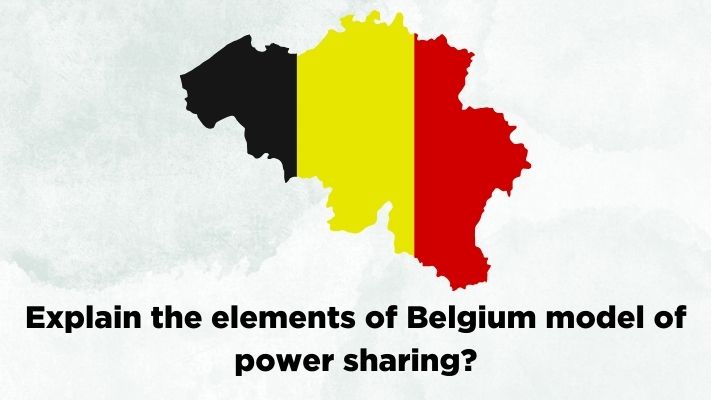Explain the elements of Belgium model of power sharing?
(i) Constitution prescribes that the number of Dutch and French-speaking ministers shall be equal in the Central Government. No single community can take decisions unilaterally.
(ii) The State Governments are not subordinate to the Central Government.
(iii) Brussels, the capital, has a separate government where both the communities have equal representation.
(iv) A third kind of government, ‘Community Government’ is elected by people belonging to one language community Dutch, French and German speaking, no matter where they live. This government can decide on cultural, educational and language related issues.

What is the relationship between State Governments and the Central Government?
(a) State Governments are subordinate to the Central Government
(b) State Governments are equal in authority to the Central Government
(c) State Governments have no authority compared to the Central Government
(d) State Governments are appointed by the Central Government
Solution
(b) State Governments are not subordinate to the Central Government
According to the Constitution, what is the requirement regarding the number of Dutch and French-speaking ministers in the Central Government?
(a) Dutch-speaking ministers must outnumber French-speaking ministers
(b) French-speaking ministers must outnumber Dutch-speaking ministers
(c) The number of Dutch and French-speaking ministers must be equal
(d) There is no specification regarding the language of ministers
Solution
(c) The number of Dutch and French-speaking ministers must be equal
How are decisions made in the Central Government regarding linguistic communities?
(a) Unilaterally by a single community
(b) Through a majority vote of all linguistic communities
(c) By consulting with linguistic communities equally
(d) Without any consideration for linguistic communities
Solution
(c) By consulting with linguistic communities equally

0 Comments